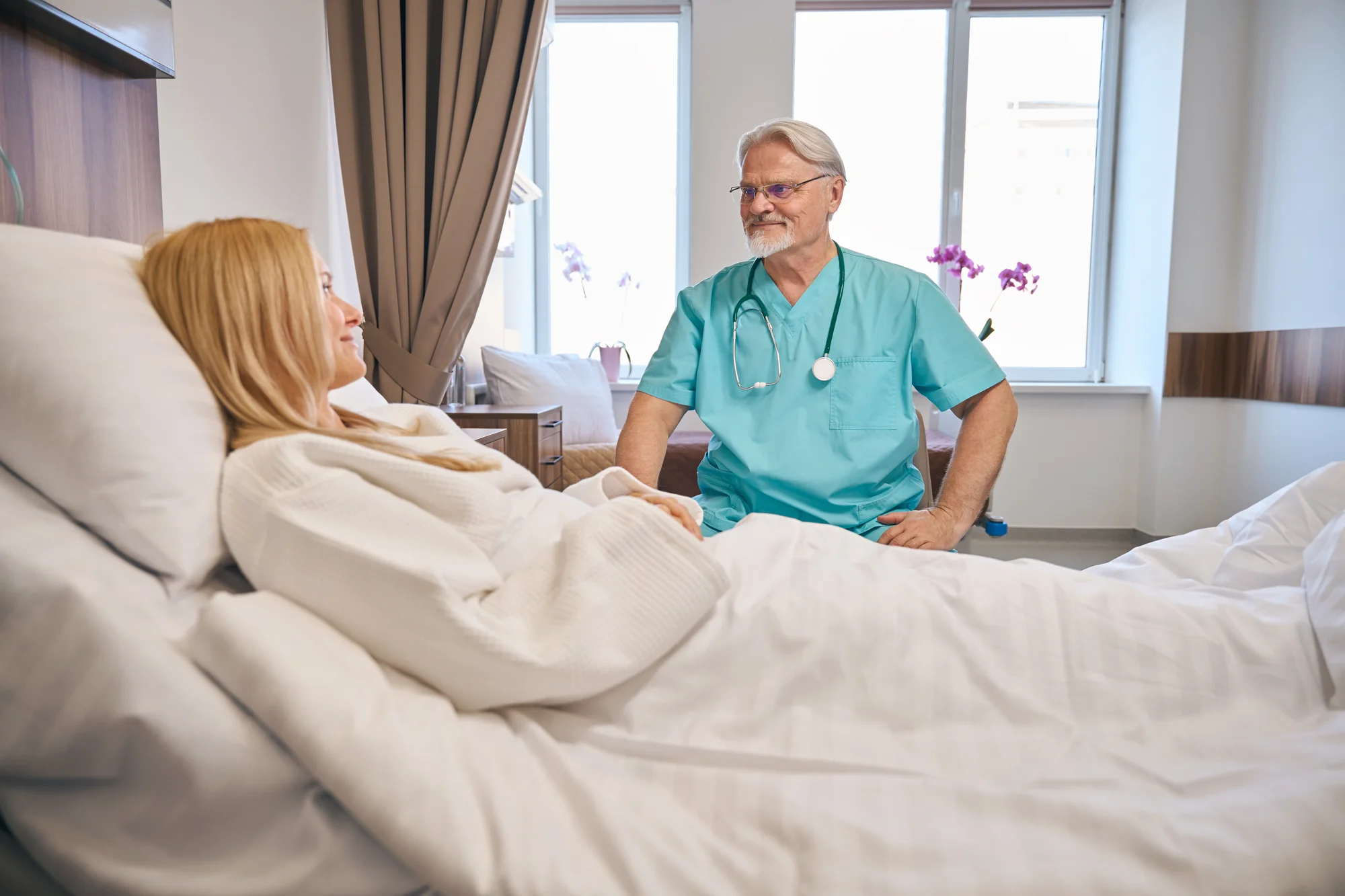Do you want to come to Germany as a Filipino doctor or nurse and work in Germany? Or do you want to do an apprenticeship in Germany as a graduate of a Filipino school? That is a good decision.
Germany is and remains a popular country for labour migration, including for Filipino healthcare professionals. Working conditions in Germany are good and getting better all the time. Employees in Germany are well protected in old age, unemployment, illness, accidents and care. In Germany, leisure time, family and work can be easily combined thanks to flexible working hours. Health promotion and occupational health and safety are very important.
In addition, wages are paid reliably and punctually in Germany. In the event of disputes with employers, employees are supported by works councils or the functioning court system.
The following options are available to you:
Visa to train as a carer in Germany: information and application process
If you are a Philippine citizen and have a In-company vocational training as Carer in Germany, you can apply for a visa in accordance with Section 16a of the Residence Act (AufenthG) and Section 8 (1) of the Employment Ordinance (BeschV).
Who can apply for a visa?
- Filipino citizens who wish to come to Germany to start training as a carer usually have to obtain a Secondary school leaving certificate that is at least equivalent to the German Secondary school leaving certificate equivalent. This is the intermediate school leaving certificate and is usually achieved after 10 years of schooling.
- In the Philippines, this normally corresponds to the High School Diploma after completion of the K-12 educationwhich has been the standard since 2016. Completion of year 12 is crucial in order to fulfil the formal educational hurdle.Necessary
Language skills
- For a Qualified vocational training in a state-recognised occupation (e.g. nurse, baker, hotel specialist) is a German certificate B1 an ALTE-certified language school (e.g. Goethe-Institut, ÖSD, telc, TestDaF, ECL) is required.
- or an A2 language certificate and confirmation from the employer that the language skills required for the specific training programme have been tested by the educational institution or are to be acquired through a preparatory German language course.
Required documents
- Passport.
- Application form.
- Two biometric passport photos.
- Visa fee
- Prior approval from the Federal Employment Agency or the Foreigners' Registration Office (in the accelerated skilled labour procedure).
- Aimed training contract.
- Aimed training plan.
- Proof of means of subsistence (e.g. blocked account with a fixed amount that can be withdrawn monthly).
- Curriculum vitae in tabular form.
- Letter of motivation.
- Proof of language skills (B1 = sufficient knowledge of German) or an A2 language certificate and an employer's confirmation of sufficient knowledge of German
- Proof of health insurance.
- In the case of a preparatory language course(confirmation of registration and payment from a language school in Germany for an intensive German course, proof of health insurance that covers the entire stay, see above, proof of livelihood also for the period of the language course, see above)
Visa for a recognition partnership
Employees with a foreign professional qualification, in the Philippines, for example the B.S. in Nursing, which is not yet fully recognised in Germany, can apply for a visa to study in the Philippines. Recognition partnership apply for a licence. This applies to regulated professions (e.g. healthcare professions) and non-regulated professions (e.g. tourism).
Necessary language skills
- For the recognition partnership as a nursing professional from the Philippines, a German certificate B1 required.
Necessary vocational training
- A minimum of two years Vocational training or a University degree in a state-recognised profession in the country of origin.
Required documents
- Passport.
- Application form.
- Biometric passport photos.
- Visa fee.
- Recognition partnership agreement and employment contract.
- Letter of recognition from the German authorities.
- Proof of language skills (B1 = sufficient knowledge of German).
- Proof of health insurance.
Visa for the recognition of foreign professional qualifications
A visa for Recognition of foreign professional qualifications is specifically intended for regulated professions such as doctors and enables participation in examinations for professional authorisation.
Necessary language skills:
- German certificate B2 for professions in the Health and care sector (e.g. doctors, nurses).
Necessary educational qualifications
- A Diploma or conclusion of a foreign professional qualification.
- Recognition notice from the German authority that an examination for professional authorisation is required.
Required documents
- Passport.
- Application form.
- Biometric passport photos.
- Visa fee.
- Recognition notice that an examination is required.
- Proof of registration for the examination.
- Proof of living expenses and health insurance.
Visa for skilled workers with recognised vocational training
Specialists with a recognised foreign vocational trainingrecognised as equivalent to German vocational training can apply for a visa to enter Germany. Gainful employment in accordance with § 18a AufenthG.
Necessary language skills
- German certificate B1 for qualified professions.
Necessary educational qualifications
- Recognition notice the competent German authority on the equivalence of the vocational training.
Required documents
- Passport.
- Application form.
- Biometric passport photos.
- Visa fee.
- Letter of recognition from the German authorities.
- Proof of health insurance.
Visa for skilled workers with an academic education
Philippine doctors with a recognised foreign university degree (or also with a German university degree) can apply for a visa for the Gainful employment in accordance with § 18b AufenthG.
Necessary language skills:
- German certificate B2 for academic professions, depending on the activity.
Necessary educational qualifications:
- A recognised university diploma (e.g. Bachelor's, Master's) or a foreign degree that is equivalent to a German university degree.
Required documents:
- Passport.
- Application form.
- Biometric passport photos.
- Visa fee.
- Letter of recognition from the competent authority confirming the equivalence of the university degree.
- Proof of health insurance.







